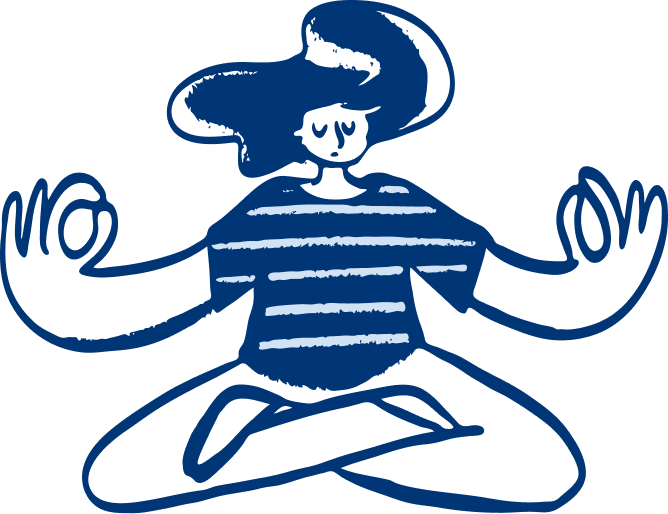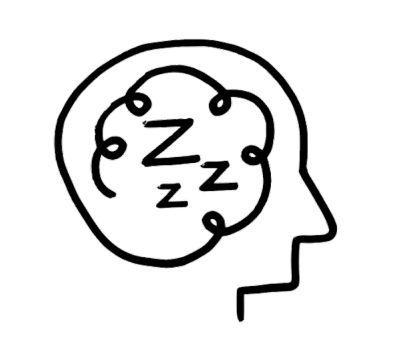Signs and effects of eating challenges and EDs
Eating challenges (disordered eating) and eating disorders (EDs) can show up differently for everyone. They might start with small changes in habits or patterns and gradually have a bigger impact on your mental, physical, and emotional wellbeing.
By learning to spot the signs and understanding how you might be being impacted, you’re taking a meaningful step toward seeking support for yourself or someone you care about.
On this page, you’ll find information on:
- Common signs of eating disorders (EDs)
- How eating challenges and EDs affect your health and wellbeing
- Understanding the connection between EDs and addictive behaviours.
Scroll down to learn more and take the first step toward understanding and support.
Signs you or someone you care about may have an eating disorder
It’s not always easy to recognise patterns that come from eating challenges or EDs, and that’s okay.
The signs can be subtle, gradual, or mistaken for other habits or behaviours. It’s natural to feel unsure or overwhelmed when trying to understand what’s happening, but noticing these patterns is an important step toward making sense of your experience or supporting someone else.
Below are some common signs you can look out for.
- Things you might notice in your body
- Weight changes: Sudden or frequent shifts in weight that feel unexpected
- Tiredness and fatigue: Feeling unusually drained or struggling with everyday tasks
- Stomach discomfort: Recurring pain, bloating, or digestive issues without a clear cause
- Changes in appearance: Physical differences like dry skin, thinning hair, or brittle nails
- Dental problems: Sensitivity, damage, or other issues with teeth or gums.
- How you might feel
- How you might act
Signs to look out for in children and young people
Eating disorders can show up differently in kids and young people than they do in adults, which can make the signs harder to spot. Young people might not have the words to explain how they’re feeling, so their struggles often come through in other ways, like changes in behaviour, physical health, or emotions.
Recognising these signs can help you understand when a child or young person might be struggling and could need support.
Physical signs
- Changes in growth or development: Slowed growth or delayed puberty compared to their peers
- Unexplained weight changes: Noticeable shifts in weight that seem unusual for their age
- Frequent health complaints: Regular stomachaches, dizziness, headaches, fatigue, or other unexplained physical issues
- Changes in appearance: Dry skin, brittle nails, or thinning hair
- Avoiding certain foods or meals: Saying they’re not hungry or becoming overly selective about foods they used to enjoy.
Behavioural signs
- Increased secrecy: Avoiding family meals, hiding food, or eating alone more often
- Changes in activity levels: Exercising more than usual, even when tired or unwell
- Focus on body image: Spending a lot of time worrying about how they look or their weight
- Disrupted routines: Skipping meals, avoiding social situations, or pulling back from family events that involve food
- Fixating on food ‘rules’: Talking about foods being ‘good’ or ‘bad’ and avoiding entire food groups.
Emotional signs
- Mood swings: Becoming more irritable, anxious, or withdrawn
- Low self-esteem: Criticising their body or comparing themselves to others
- Fear around food: Feeling upset, overwhelmed, or anxious during meal times
- Social withdrawal: Spending less time with friends or family and becoming more isolated.
“It’s natural to feel unsure about whether these behaviours mean something deeper is going on. Trust your instincts; if something feels off, it’s worth reaching out and starting a gentle conversation. The earlier someone feels seen and supported, the sooner they can begin to feel better.”
For more advice about starting a conversation, you can read our support guide on how to talk to someone about their mental health.
Eating challenges and EDs often involve patterns that feel difficult to break, like a strong focus on controlling food, exercise, or body image. While these patterns might offer a sense of relief or control in the moment, they can become overwhelming and take a toll on your health and wellbeing.
It’s important to know that these struggles aren’t about willpower. They’re often linked to underlying emotions or stress that can keep you feeling stuck in a cycle of addiction.
How do eating challenges and EDs impact health and wellbeing?
Eating disorders can affect every part of life, far beyond food and weight. They can take a toll on your body in ways that may not always be obvious at first. Over time, these thoughts, feelings, and patterns can impact your overall wellbeing, making everyday life feel harder to manage.
Recognising how these effects show up in your life can help you understand what your body might need to feel supported and stronger again.
Below, you can read about some of the ways eating challenges and EDs can impact your health, wellbeing, and social life.

- Physical effects to look out for
- Tiredness and fatigue: Feeling low on energy or struggling to keep up with daily activities
- Weakness and fainting: Lightheaded, dizzy, or fainting due to a lack of energy or nutrients
- Heart palpitations: Irregular or racing heartbeat
- Digestive issues: Bloating, stomach pain, constipation, nausea, or ongoing discomfort
- Sleep problems: Finding it hard to fall or stay asleep, or waking up tired
- Menstrual changes: Irregular, lighter, or missed periods
- Weakened immune system: Getting sick more often or taking longer to recover
- Bone and muscle health: Increased risk of weak bones, muscle loss, or joint pain
- Changes in appearance: Things like dry skin, brittle nails, or hair loss
- Oral health issues: Problems like tooth sensitivity, enamel damage, or tooth loss.
These physical effects can often feel overwhelming, but it’s important to remember that they are signals from your body, not failures. With the right care and support, many of these changes can be addressed, helping your body to heal and regain strength.
- Emotional effects to look out for
- Social effects to look out for
Understanding the connection: eating disorders and addictive behaviours
Eating challenges and EDs are often closely tied to mental health challenges like anxiety, depression, or post-traumatic stress disorder (PTSD). These challenges can overlap (a concept called ‘comorbidity’) and often influence each other, creating a cycle that feels difficult to break. For example, anxiety might lead to controlling food to feel calmer, but the restriction itself can intensify anxiety over time.
For many, the cycle of disordered eating can feel similar to addiction. Behaviours like binge eating, restricting, or purging may bring a sense of relief or control in the moment, but over time, they become hard to stop, even when you want to. This can leave you feeling stuck and unsure how to move forward.
While EDs and addictions aren’t exactly the same, they share many similarities, including how they affect your emotions, thoughts, and behaviours. Understanding these connections can make it easier to approach recovery with compassion.
On the eating and body image causes page, you can read about some of the factors and influences that can lead to eating challenges and EDs.
Healing often involves addressing both the behaviours and the emotions driving them with the right support and tools to help you break the cycle.
Lifeline is here for you
Eating challenges and EDs can lead to thoughts, feelings, and behaviours related to suicide.
If you're feeling overwhelmed or in crisis, you can connect with Lifeline 24 hours a day, 7 days a week via 13 11 14, text, and chat. We’re here to listen to whatever it is you’re going through.
Click here to download, save, or print our eating and body image fact sheet.






